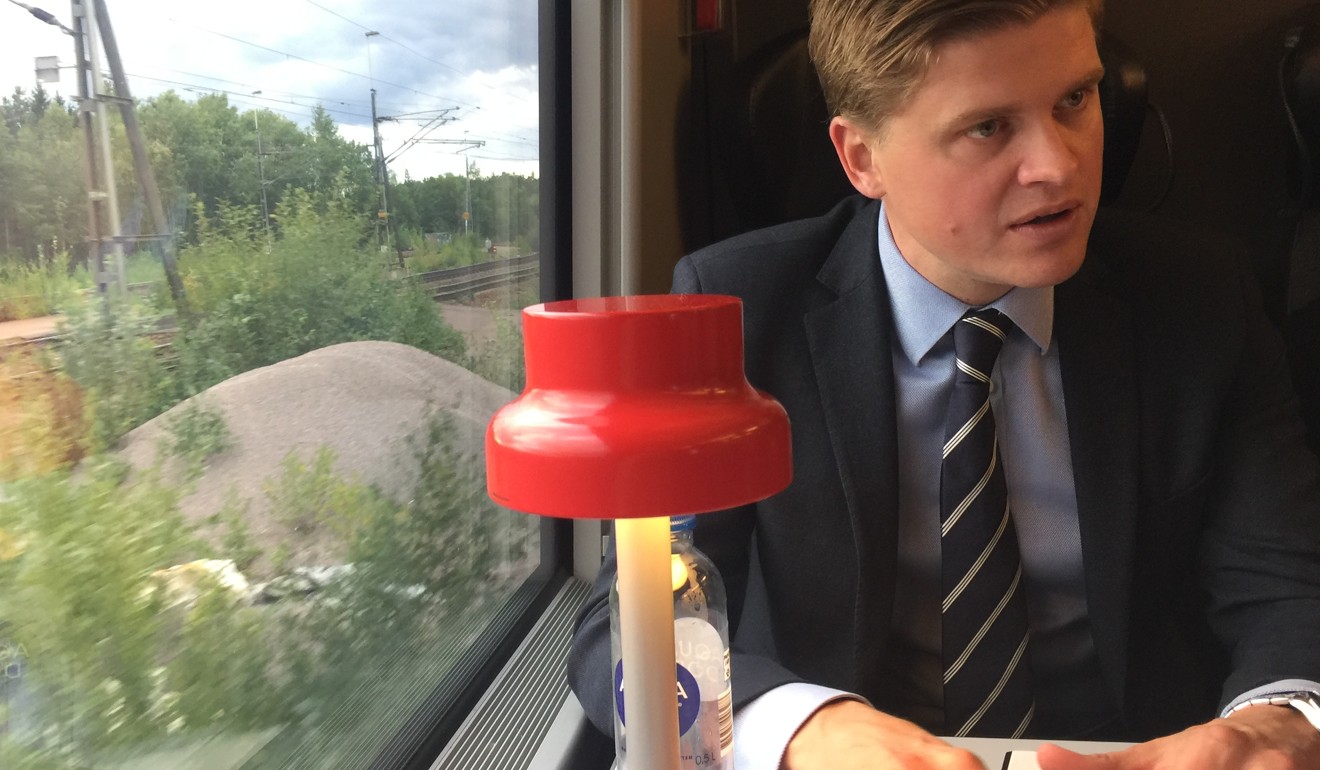
MTR in David and Goliath battle with Swedish incumbent on Gothenburg-Stockholm trains
Hong Kong rail operator deploys new trains, younger drivers and cheaper services against dominant Swedish player
It has been a David and Goliath battle since Hong Kong’s rail operator MTR Corporation launched its service between Sweden’s two largest cities, Gothenburg and Stockholm, in 2015.
So far, travellers have won, as the smaller MTR Corp’s fight against the state-owned giant SJ has sparked a price war on fares and services.
Hong Kong’s newest export? MTR looks to sell trains-and-property business model in UK and Sweden
The Hong Kong company has earned a 30 per cent share of the 455km Gothenburg-Stockholm route, enticing riders with new train carriages, an on-board menu created by a celebrity chef, cheap fares, young drivers and 24-hour online ticketing services, said Mats Johannesson, chief executive of MTR Express, which plies the line.
“We not only target our main competitor, but also airlines making the same route,” he said during a 3.5-hour journey to Stockholm last week.
MTR consortium extends right to operate Metro Trains Melbourne for another 10 years
MTR Express services launched after the Swedish government opened its rail industry to international competition between 2009 and 2011, breaking SJ’s monopoly.
It is an important part of MTR Corp’s portfolio in the Nordic region, which also includes 110km of subway services in Stockholm, maintenance for the Stockholm Metro and 250km of commuter services connecting Stockholm with surrounding towns.

MTR Corp is the biggest railway operator in Sweden by passenger volume, clocking up 436 million passenger trips last year. But that is only a fraction of its volume in Hong Kong, where it put on 1.58 billion domestic passengers trips last year.
Johannesson said the number of riders was likely to jump 33 per cent to 760,000 this year after more than doubling from 270,000 in 2015 to 570,000 last year. Next year’s passenger count is expected to rise further, as the company got approval to increase its weekly number of services by 10 per cent.
How Hong Kong’s MTR takes on local rail giants in Europe
MTR Express trains, which are Swiss-made and cost about HK$700 million, offer rates about 15 per cent cheaper than SJ. MTR Express has also proven more punctual despite going slower than SJ trains, which can take curves at higher speeds.
In a bid to match its rival, SJ recently began refurbishing its trains and cutting fares by about 13 per cent.
Bjorn Aschan, 75, a former lawyer from Gothenburg who retired in 2008, was enjoying his ride to a hunting trip in Stockholm. He said the MTR Express brought back fond memories of the time he spent in Hong Kong for work.
“I can smell Hong Kong on the train after leaving the city for so long,” Aschan said.
And he said that commuters were the likely winners from a new arrival in the market. “Increased competition is good,” he said.
Maria Hofberg, business area manager of SJ, said the state-owned company did not see “a war” with its competitors on the Gothenburg-Stockholm route.
“The competition makes us better, but of course we will work hard to give the traveller the best possible journey and to be the customers’ first choice,” she said.
She said SJ planned to buy about 30 new, modern trains, which would be the fastest in Sweden.
“We will recruit 500 train drivers and train hosts for the next three years, from 2017 to 2019 to meet the increased [demand for] travel with trains,” she said.
Denise Tsang reported from Gothenburg and Stockholm.

